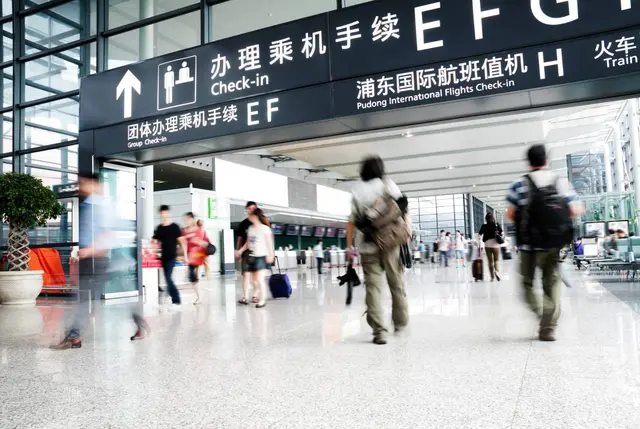*Author: Prof. Engr. Zamir Ahmed Awan, Founding Chair GSRRA, Sinologist (ex-Diplomat), Editor, Analyst, and Non-Resident Fellow of CCG (Center for China and Globalization). (E-mail: [email protected]). *
China has removed all COVID-related restrictions and restored them to fully normal. The lifting of Covid-19 restrictions means the resumption of international business, the revival of tourism and consumer spending, and the return of cultural exchanges. Yet, it received a lot of criticism from the Western World. It is really strange when China implemented its “Zero Tolerance Policy”, and faced severe criticism from the Western World that China is too strict, violates human rights, and is blamed as an authoritarian government. But, once removed strict restrictions, again blamed and criticized. Unfair! Whatever China does, good or bad, it will be criticized by Western World. It is the hypocrisy of the West!
It is believed that China will do whatever suits him. And China should not care, what so ever the West thinks. It should keep its national interests at the top and manage its best possible governance to serve its public in the best possible manner. There is absolutely no need to satisfy Western World.
China’s opening up and resumption to normal will have a positive impact on China as well as on the rest of the world. It will inject vitality into the economy as people return to regular work and life patterns. The accelerated reopening has prompted Goldman Sachs and Morgan Stanley to raise China's GDP growth forecasts to above 5 percent for 2023. It will also ease fears of a global recession at a time when advanced economies are slowing as a result of rising interest rates and high energy costs. The country is by far the world’s biggest growth engine, accounting for around one-third of global growth.
Despite some short-term disruption from staff shortages, the end of restrictions should gradually help to resolve blockages in supply chains that have caused long delays for products ranging from cars to iPhones, helping to ease inflation.
Stems from the resumption of travel to and from China. Unlike flows of goods and capital, which remained strong even under zero-COVID, trips in and out of China have been reduced to a trickle, plunging 79 percent for mainland citizens and 95 percent for foreigners in 2021, compared to 2019 levels. Eased cross-border travel is a boost for the operations and investment of multinationals. Executives will resume travel between headquarters and China, facilitating new deals and projects. Similarly, Chinese entrepreneurs will embark on long-delayed trips to scour opportunities in overseas markets. Improved conditions will also help China-based firms attract and retain foreign talent. Last January, it was estimated that as many as 100,000 foreigners were waiting to return to Shanghai alone, including teachers and other elements of the family infrastructure that supports the international workforce.
Certainly the revival of the Chinese consumer market. Consumer confidence hit record lows in 2022, but it has already picked up significantly since reopening began, making Chinese consumers the most confident in the world, according to the latest survey by Ipsos. There is room for a considerable degree of mean-reversion recovery in 2023 as China’s middle class unleashes pent-up spending power. Chinese consumers didn’t get government cheques like in the West, but they hoarded cash during the pandemic. Nominal disposable income per capita rose by 5.3 percent in the first nine months of 2022, while residents’ onshore savings rose by 16.7 percent to a record high of US$17 trillion as of November 2022.
As well as increased spending on imports, China’s reopening means a huge windfall for the global tourism sector, which accounts for over 10 percent of the global GDP. Before the pandemic, Chinese tourists accounted for almost 20 percent of international tourism spending, or US$255 billion in 2019. Their absence left a huge black hole, but early signs indicate they will be back in force. Searches for top overseas destinations on the travel platform Ctrip surged tenfold within 30 minutes of the announcement of relaxed quarantine rules.
The first beneficiaries of this “outbound rebound” will be nearby destinations highly exposed to Chinese spending like Hong Kong and Thailand, for whom extra travel spending could see a GDP boost of 6 percent and 3 percent respectively, according to estimates by Goldman Sachs. Travel-related sectors such as aviation, hotels, and retail will also benefit.
US-China tensions cast a dark shadow over prospects for the global economy. Zero-COVID exacerbated this problem by choking the bilateral interpersonal exchange that is so important for building trust and mutual understanding.
China’s reopening paves the way for a resumption of in-person engagement between officials, scholars, entrepreneurs, and students from both countries. This interaction is important, especially for the next generation of decision-makers. Opening opportunities for cooperation, collaboration, contributing toward economic activities, understanding, and peace.
It is believed that China's back to normalization is a ray of hope for the Chinese as well as the rest of the world and is appreciated by most of the developing nations and friends of China. Ignoring the Western World’s pessimism, China should move forward steadily and firmly, keeping its positive role in international affairs and serving humankind globally.
(ASIA PACIFIC DAILY)
 简体中文
简体中文

